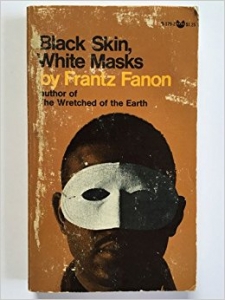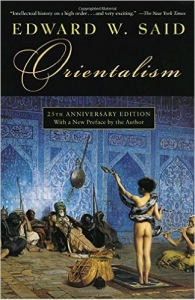The International Scholars Program (ISP) encouraged students involved to expand their perspectives globally through various classes and seminars. Now, the ISP program is nearing it’s end. In honor of this course, I sat down with two former ISP students, Liv Siegal and Terrin Rosen who gave recommendations of four books they read throughout the course. While there are specific explanations on why for each of the books below, Liv felt that all of these books were important for her because “[Reading these books] helps us understand why the world is the way it is today. It helps us understand global capitalism. It helps us understand white supremacy, war, national boundaries— pretty much anything related to international relations.”
Guns, Germs, and Steel by Jared Diamond
Summary: “It’s basically a theory on how the west was able to rise to global supremacy. The whole idea is that it’s based on the way the genocide of the Native Americans happened through the spread of infection, guns because they were able to access gun-powder, so their weapons were more advanced than the indigenous people living here, and steel is industrialization.”
On why it matters: “There’s some truth to it, and it’s an unorthodox interpretation of history, and it also helps us understand the way the systems of oppression work today.” (Liv)

Black Skin, White Mask by Frantz Fanon
“It’s about the systems of racism that were being exercised when the world was being colonized and how the colonized experience a lot of internalized racism… the colonized experiences because of the colonizer.” (Liv)
Orientalism by Edward Said
“It’s, again, postcolonial theory, and it’s basically about how Western culture looks at ‘the east’ and ‘the orient’ and how we take that and co-modify that.” (Terrin) “[This] was another one that I’ve recommended.” (Liv)

Discourse on Colonialism by Aimé Césaire
“It is probably a pillar of postcolonial theory, so basically looking at the way colonization worked, and it’s a critique of colonialism and a critique of the motivations behind colonization… and the systems of power it creates— particularly racism and capitalism and exploitation.” (Liv) “It looks at different ways of exploitation in ways that we don’t necessarily think of them.” (Terrin)
Resistance and Decolonization by Amilcar Cabral
“It’s very similar to Césaire’s critique of colonization.” (Liv)
I hope through this section you’ve piled up some books to read (or listen to) over Winter Break! If you have any suggestions of books, essays, collections, etc. from your majors, minors, or favorite courses, feel free to email me directly (kamon002@mail.goucher.edu) or fill out a survey titled “RAtD Submissions” (distributed through the Goucher app and class pages). Just input the title of the work, the course/professor who introduced you to it, and why you think others should read the book. Happy reading!
